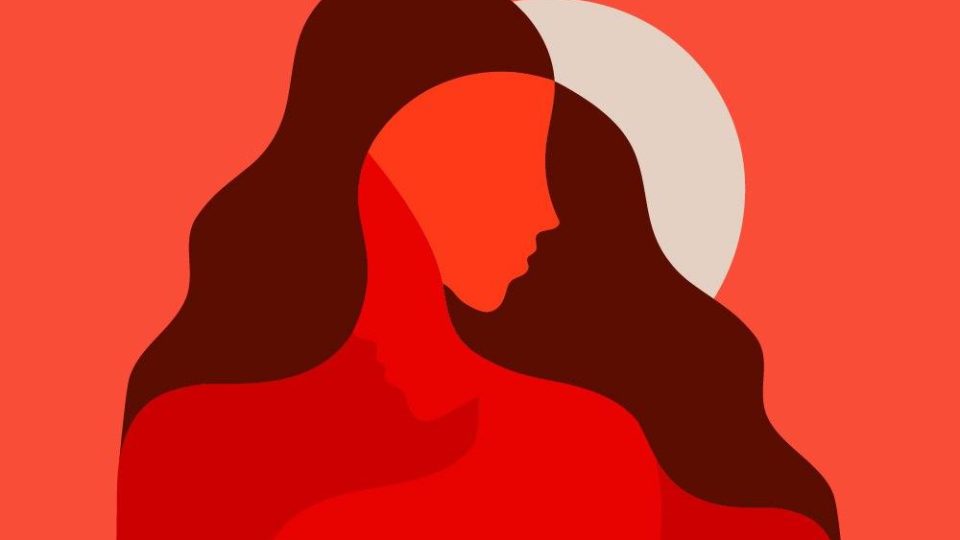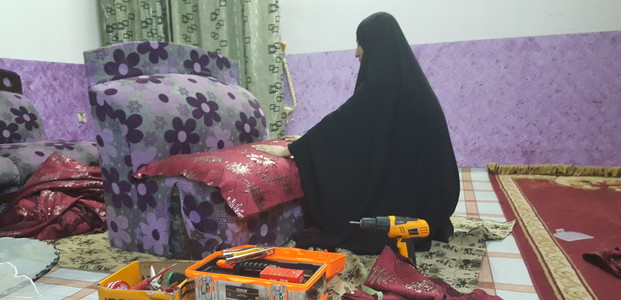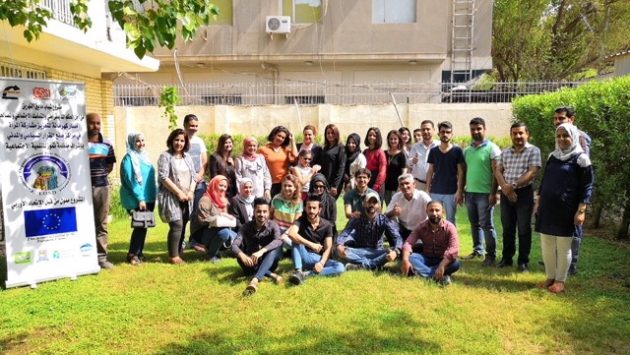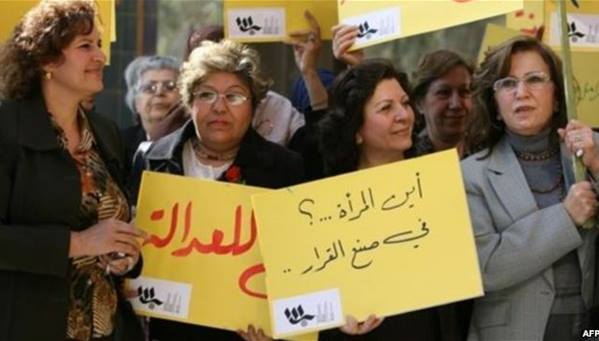Will Passing the Domestic Violence Law Reduce Violence Against Women?
Dialogue on violence against women
The She Revolution group held a webinar on 3 May 2020 entitled “A Dialogue on Violence Against Women.” The webinar coincided with other events in the surrounding days aimed at increasing public pressure on the Iraqi government to pass the Domestic Violence Act.
The group hosted three speakers close to women’s rights issues and knowledgable about the Domestic Violence Act:
- Commissioner Rana Ibrahim Mohamed – media correspondent and lecturer of the Community Police
- Marwa Abd – lawyer and activist with an interest in women’s issues, director of an organization, For Her, and one of the active participants in drafting the Domestic Violence Law.
- Amal Kabbashi – member of the 1325 Alliance Network and an activist interested in women’s issues
The first axis of the webinar was devoted to the community police, which was established in 2008 by the Ministry of Interior. This corps was entrusted with the task of acting as mediator between the police and the communities they serve, enhancing their role in protecting vulnerable people, especially women.
Rana Ibrahim began her speech by introducing the community police and explaining what they do. The chair of the panel asked the Rana about how the authorities deal with the those who are exposed to violence given the absence of a domestic violence law. “There is a wall between the Ministry of Interior and the people,” she said, “the community police are working to break down this barrier. In these days during which people are quarantined we are seeing many violations and cases of terrible abuse, the latest of which is the story of Malak Haider Al-Zubaidi. The community police respond to complaints filed. We take the necessary actions to prevent further abuse by aggressors, and listen to the problem from both sides. We arrange for victims to receive the help and support they need from health and psychological centers. Once the victim’s safety is ensured, we start to raise awareness amongst all involved about what has happened, taking pledges from the aggressor to ensure that the abuse will stop. This stage is critical as it is the foundation upon which trust is built between the police and the people. We aim to approach the problem from all sides, using the law and alerting the families involved so that women are protected.
Rana also spoke about some of the specific problems that the community police deal with, such as sexual assault, abuse and physical violence. She explained that “we are now dealing with many issues, from abuse in families to the struggles faced by low-income families — our work is not limited to cases of violence only.”
The chair then asked about their role in the relationship between violence against women and the Iraqi National Plan for Commitment and Security Council Resolution 1325. Rana answered, “We play an important and influential part in protecting women from the violence directed against them because the community police do not work with issues of physical violence in isolation but look at how the broader social, religious and political context might contribute to ongoing violence.”
Commissioner Rana indicated that the most significant cause of violence in Iraq comes from a middle eastern Islamic society — this community has extremely conservative views on the issue of equality between citizens and is particularly discriminatory against women.
Rana then laid out the most important preventive methods taken by the police:
⁃ Provide the community with a police hotline, number 497.
⁃ Provide personal phone numbers of the administrators of the Women, Family and Childhood Committee.
⁃ Launch awareness campaigns through lectures and seminars as well as videos through social media pages.
The second axis was devoted to a discussion about different drafts of the Domestic Violence Law. The second speaker, Marwa Abd, spoke about the two drafts of the law, the first for the presidency of the Republic and the second for the prime minister, both of which were read in the House of Representatives. She noted that there is a third draft, but to date it is informal and has yet to be read by the House of Representatives. There may be a proposal to merge the two drafts to make sure that there is a single draft which strongly defends women’s rights.
Marwa mentioned that one of the important ways to pressure the government to pass this law is through the media which can shed light on the law and highlight its importance within Iraq. International exposure is also critical and neighboring countries should also be pressured to cooperate by passing similar laws..
At the moment, Iraqi society suffers from the fact that it is not a “reporting culture,” people are neither inclined nor encouraged to alert authorities when abuse occurs. Having a “culture of reporting” means that all cases of violence are reported, whether it be on behalf of the elderly or children or those with special needs or the disabled — no one should be subjected to violence and abuse.
Another problem is that people’s understanding of violence is too narrow. “Violence is not only physical and it is not only used against women,” Marwa explained. “For example, parents will justify hitting their children by calling it discipline.” There is a lack of awareness about all the forms violence can take and this leads to a misuse of it as a way to discipline bad behavior.
As a lawyer, Marwa was well qualified to discuss the law and was asked if it would offer sufficient protection were legislated. She answered that “if this law is legislated, it would be an important step towards legal equality between Iraq and other countries.”
The third and final axis of the webinar looked at the relationship of violence against women with the Iraqi national plan to abide by Security Council Resolution 1325. The speaker, Amal Kabashi, explained the meaning of Security Council Resolution 1325 on women, peace and security which was adopted on by the UN on 31 October 2000. This resolution urged the Security Council, the Secretary-General, member states and all other parties to take the necessary measures to ensure women’s participation in decision-making and peace processes. 1325 introduces gender as a relevant factor into the mainstream, one which needs to be addressed in trainings, peace-keeping missions, and the protection of women generally. It strives to incorporate gender in all UN reporting systems and programs implementation mechanisms.
The adoption of Security Council Resolution 1325 is considered a key step for the development of women’s rights, security and peace issues, as it is considered the first official and legal document issued by the Security Council in which the parties to the conflict are asked to respect women’s rights, support their participation in peace negotiations, and in rebuilding and reconstruction post conflict.
We, members of She Revolution, thank everyone who participated in this fruitful webinar.
And an extra big thank you to all the speaker and participants — and to our colleague Sarah for translating the webinar into English.
She Revolution




